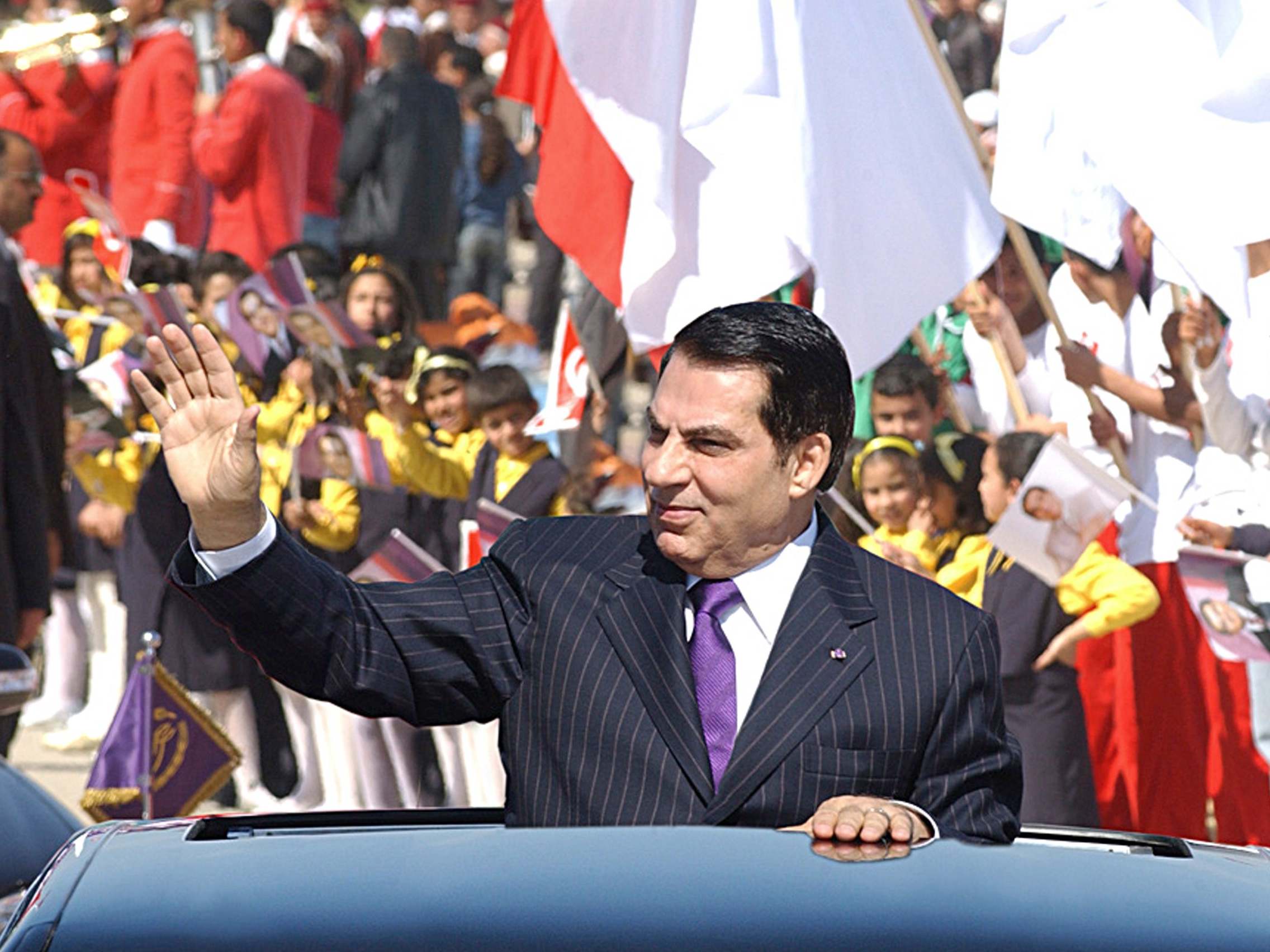Ben Ali’s death marks the official end of autocracy in Tunisia – but the nation isn’t out of the woods yet
The shadow of the exiled former leader is no longer a burden on the country, but corruption, unemployment and poor living conditions, which Tunisians revolted against in 2011, haven’t gone away either


Your support helps us to tell the story
From reproductive rights to climate change to Big Tech, The Independent is on the ground when the story is developing. Whether it's investigating the financials of Elon Musk's pro-Trump PAC or producing our latest documentary, 'The A Word', which shines a light on the American women fighting for reproductive rights, we know how important it is to parse out the facts from the messaging.
At such a critical moment in US history, we need reporters on the ground. Your donation allows us to keep sending journalists to speak to both sides of the story.
The Independent is trusted by Americans across the entire political spectrum. And unlike many other quality news outlets, we choose not to lock Americans out of our reporting and analysis with paywalls. We believe quality journalism should be available to everyone, paid for by those who can afford it.
Your support makes all the difference.When the breaking news came out that Tunisian autocratic ex-ruler Zine el Abidine Ben Ali had died on Thursday, few moments of caution and need for verification followed before official information confirmed his death in Jeddah. Rumours of his death have circulated several times over the years.
Symbolically, for a lot of Tunisians, the 83-year-old tyrant, who was absent from the political scene for eight years, had died a long time ago. While he was in exile in Saudi Arabia in the years following the revolution, the country moved on to adopt a new constitution, swear in its first democratically elected president Beji Caid Essebsi, and elect a fresh parliament making solid steps into the democracy-building process.
But what’s really interesting is the timing of Ben Ali’s passing. Remarkably, it came between the two rounds of the second free presidential election in his homeland since he was toppled in 2011.
What’s more, it happened ahead of a presidential run-off between two political outsiders, as the first round had essentially resulted in an “anti-system” vote. Last Sunday’s polls clearly expressed the will of the Tunisian people to break with the ancient regime and move past the post-2011 political establishment.
With the second democratic presidential vote underway and news of Ben Ali’s death in the background, there’s an indication that Tunisia is moving forward swiftly in its journey towards democracy.
Halfway through the 2019 presidential polls, it’s safe to say that Tunisian citizens are owning the process to choose their next head of state. After acknowledging the early results in a first-round vote that no one could predict, one can appreciate voters sending a firm “No” message to the post-revolutionary political class, a bold democratic test for the inspiring, yet fragile beacon of democracy in the Arab world.
Today’s Tunisia begins a new chapter with an uncertain future. Two independent candidates, law professor Kais Saied and jailed media magnate Nabil Karoui, who were selected from a large and diverse field of candidates, will contest for presidency leaving voters to decide their country’s fate.
It’s no surprise then, that a reaction of relief, bitterness and indifference at the official news of Ben Ali’s death was shared by so many Tunisians.
“For me Ben Ali died on December 17 2010 and buried on January 14 2011,” wrote Sami Ben Gharbia, a human rights campaigner and blogger, on Twitter.
“Good riddance. He destroyed our country. I feel no sadness at his passing.” Moncef Bouhafa, a media professional, tweeted.
“I’m completely indifferent to Ben Ali’s death. Tunisians suffered a lot under his rule ... I can’t wait for tomorrow’s Tunisia!” said a citizen named Khoubaieb Essaadi.
Holding democratic, pluralistic elections would have been inconceivable in the days of Ben Ali. The few times when his rule was put to a vote, he automatically won re-election by more than 99 per cent with no realistic chance for opponents to question the vote’s legitimacy in a police state where few dared to challenge the all-powerful system.
With the death of the infamous dictator, and this most recent election, Tunisia has turned the page on a dark chapter in its history while advancing along a democratic path.
When looking back on Ben Ali’s years, Tunisians will surely not forget his legacy: the widespread and sometimes deadly political repression, mass arrests and tortures, little to no freedom of speech, the endemic corruption with the despot’s close circle – especially his wife’s family – holding an iron grip on the economy.
But the passing of Ben Ali should also be a reminder of the legacy of state violence, corruption and surveillance that is present today. Figures associated with the old guard have resurfaced and networks of the old system and persistent authoritarian practices could complicate the state of the country’s frail democracy. Some even fear a relapse into autocracy.
This is not just about the spectre of the strict control of society and state abuses. Corruption, unemployment and deteriorating living conditions, which Tunisians revolted against in 2011, haven’t gone away either.
Eight years on, while it is true that Tunisia has moved from the past dictatorship to embark upon a new path of democracy, it has also turned into an example of the dangers in failing to tackle the socio-economic problems of an increasingly frustrated populace in the aftermath of the Arab Spring.
Join our commenting forum
Join thought-provoking conversations, follow other Independent readers and see their replies
Comments